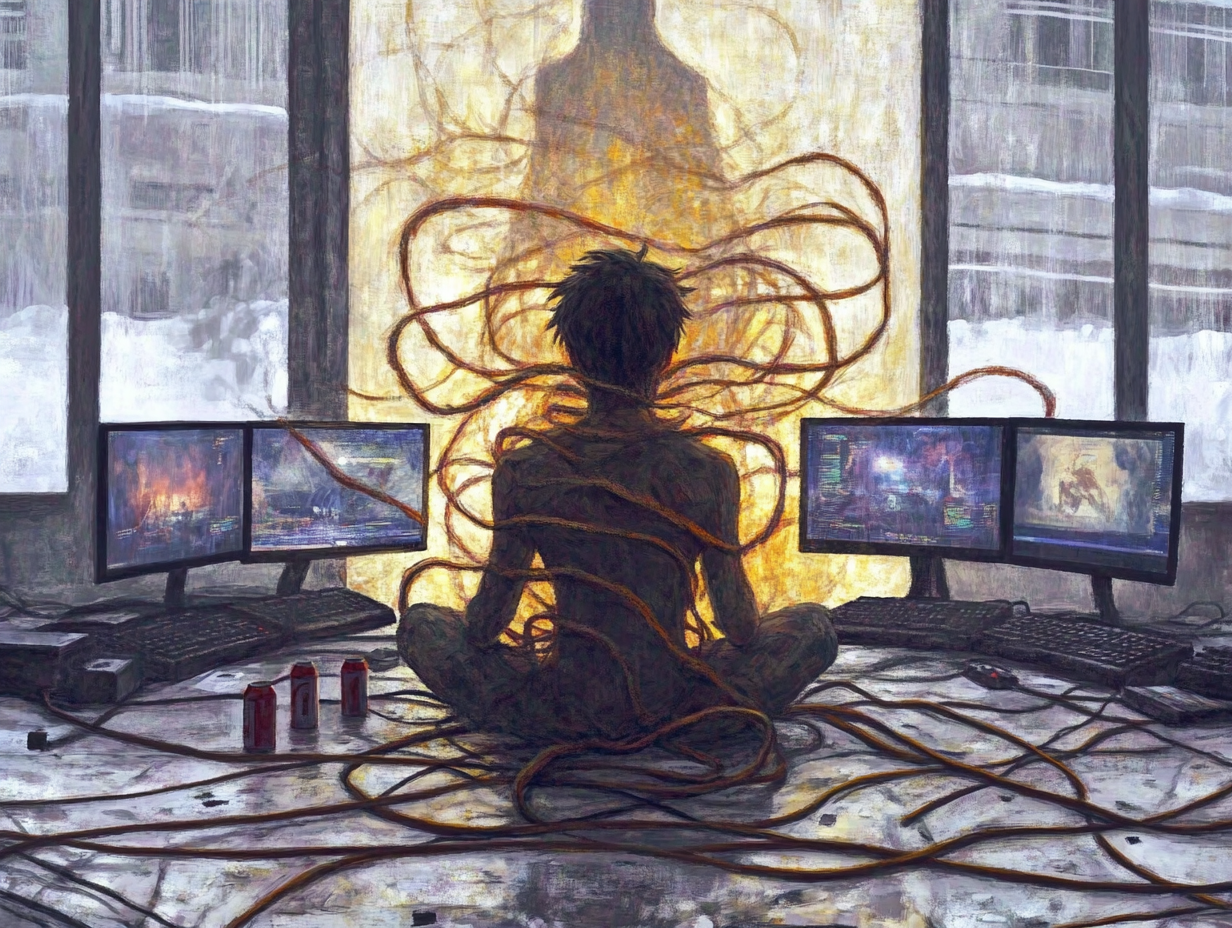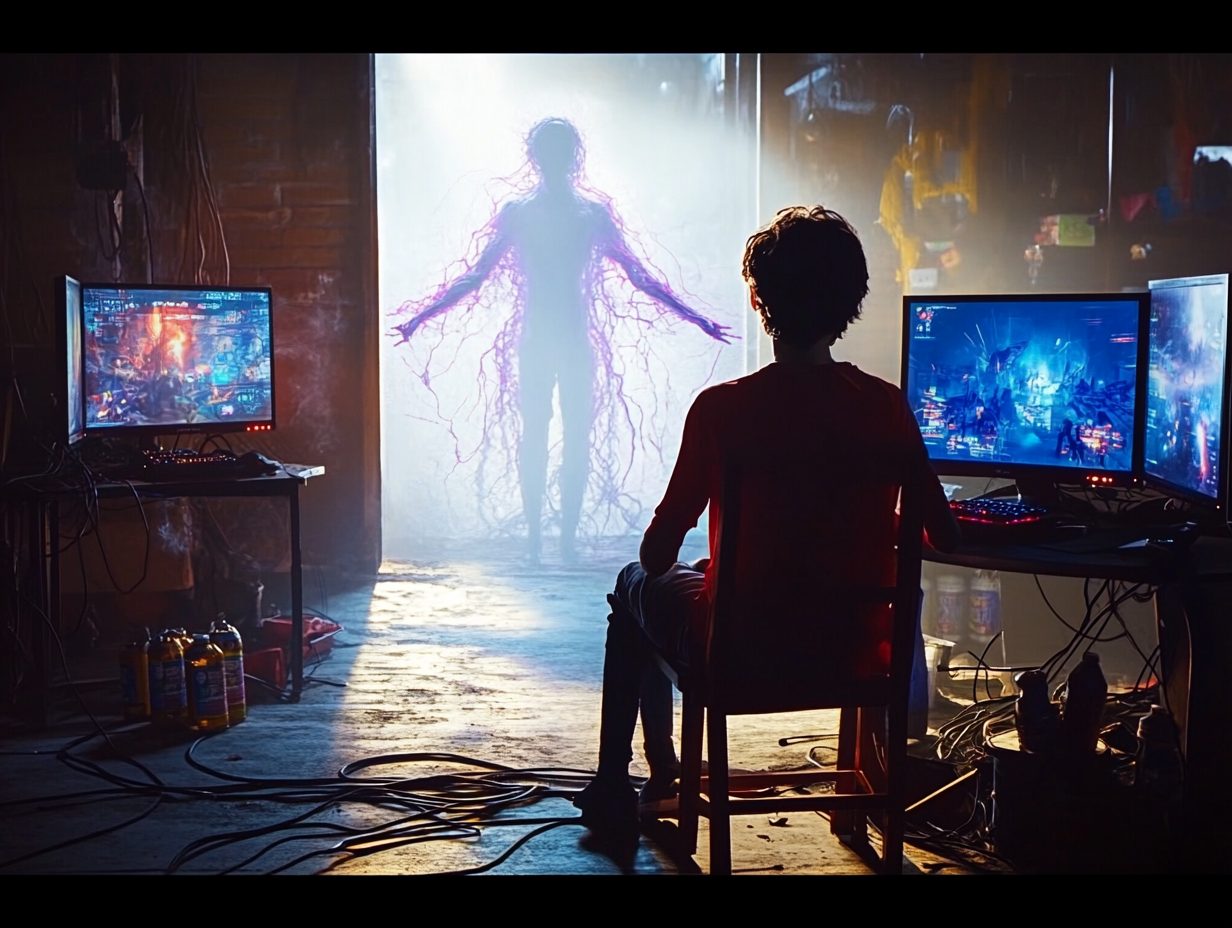🎮 Introduction
Why is it so hard to stop playing just one more game? For many, gaming is a way to relax, compete, or connect with friends. But for others, it morphs into something darker—an addiction that hijacks time, attention, and even relationships. With over 3 billion gamers worldwide, online gaming has grown into a global phenomenon. But where’s the line between a healthy hobby and an unhealthy obsession?
Let’s dive into the psychology behind online gaming addiction and, more importantly, how to break free from its grip.
📈 The Rise of Online Gaming
Gaming has transformed. From pixelated consoles in the ‘90s to immersive, always-on multiplayer worlds today, the gaming industry now rivals Hollywood in size. Platforms like Twitch, Discord, and esports leagues offer a sense of community, while mobile games provide 24/7 access—literally in our pockets. The result? It’s easier than ever to lose hours (or even days) to gaming.
🕹️ Understanding Online Gaming Addiction
What is Gaming Addiction?
Gaming addiction is a pattern of behavior where playing video games becomes compulsive, disruptive, and difficult to control—despite negative consequences in daily life.
Recognized Disorder or Just a Hobby?
In 2018, the World Health Organization classified “Gaming Disorder” as a mental health condition. That means it’s not just a made-up problem—it’s real, and it’s diagnosable.
Warning Signs of Gaming Addiction
- Playing for longer than intended
- Irritability when not playing
- Ignoring hygiene, sleep, or meals
- Falling behind in school or work
- Lying about how much you game
🧠 The Psychology of Gaming Addiction
Dopamine and the Reward Loop
Each win, level-up, or loot drop sends a shot of dopamine—your brain’s “feel good” chemical. It’s the same chemical triggered by gambling or sugary foods. The more you play, the more your brain craves that hit.
Escapism and Emotional Triggers
Life is stressful. Games offer a way to escape from reality—whether it’s school pressure, job dissatisfaction, or social anxiety.
Social Identity and Belonging
Online games aren’t just games—they’re virtual communities. Gamers form teams, build clans, and find belonging that they may not get elsewhere.
FOMO: Fear of Missing Out
Limited-time events, daily rewards, and live matches feed into the fear of missing out—so we log back in, again and again.
🎯 Why We Get Hooked
Game Design Tricks
Games use psychological techniques to keep players engaged:
- Loot boxes: like gambling for virtual rewards
- XP bars: constant progress feedback
- Quests: short-term goals that feel meaningful
Variable Rewards: The Slot Machine Effect
Just like slot machines, games use random rewards. Sometimes you win big, sometimes not—but the possibility keeps you hooked.
⚠️ Who’s Most at Risk?
Age and Demographic Factors
Teens and young adults are the most susceptible, especially boys between ages 12–25. But adults are not immune.
Underlying Mental Health Conditions
Those dealing with depression, anxiety, or ADHD are more vulnerable to excessive gaming as a coping mechanism.
Personality Traits
Impulsive behavior, low self-esteem, or thrill-seeking traits can increase addiction risk.
💥 Consequences of Gaming Addiction
Physical Health Decline
- Eye strain
- Poor posture
- Obesity
- Insomnia
Mental Toll
- Anxiety
- Depression
- Mood swings
Social Isolation
- Avoiding real-life interactions
- Relationship breakdowns
Academic and Career Setbacks
- Missing classes
- Declining grades or job performance
🔓 How to Beat Gaming Addiction
Step 1: Acknowledge the Problem
Awareness is the first step. Track your gaming time honestly.

Step 2: Set Limits
Use timers, app blockers, or daily caps. Don’t rely on willpower alone.
Step 3: Replace the Habit
Try sports, journaling, music, or coding—channel your energy into new outlets.
Step 4: Seek Help
A therapist or support group can help tackle the deeper emotional patterns behind addiction.
📱 Digital Wellbeing Tools
- Forest: Plant a tree by staying off your phone
- StayFree: Tracks your app usage
- Cold Turkey: Blocks games and apps on your schedule
- Game Quitters: A support site for gamers in recovery
👨👩👧 Parental Guidance
Parents play a huge role in shaping healthy gaming habits.
- Set screen time rules
- Encourage outdoor play
- Educate kids about balance
- Play together to understand their world
👩⚕️ When to Seek Professional Help
If gaming leads to:
- Academic failure
- Physical neglect
- Emotional withdrawal
…it’s time to speak to a counselor, psychologist, or addiction specialist.
🌈 Life After Gaming Addiction
Many who quit or reduce gaming discover new passions: art, fitness, business, and more. You don’t lose your identity—you gain a fuller one.
🎯 Conclusion
Gaming isn’t the enemy. In moderation, it’s fun, social, and even beneficial. But like any powerful tool, it can take over if you’re not careful.
The key is balance, awareness, and control.
So the next time your game says, “One more match?”—ask yourself, “What am I missing in real life right now?”
❓ FAQs
1. Can online gaming addiction be treated like other addictions?
Yes! Behavioral therapy, counseling, and digital detox plans work similarly to treatments for substance or gambling addiction.
2. Is quitting gaming completely the only solution?
Not always. Some people succeed with moderation and structure, while others benefit from quitting altogether.
3. How long does it take to break the addiction cycle?
It varies, but consistent effort over 30–90 days can bring massive change.
4. Are all games equally addictive?
No. Multiplayer games with loot boxes, social rewards, and endless progression are more addictive than standalone or story-based games.
5. Can gaming ever be healthy?
Absolutely—when it enhances, not replaces, real life. Use games for fun, not escape.
